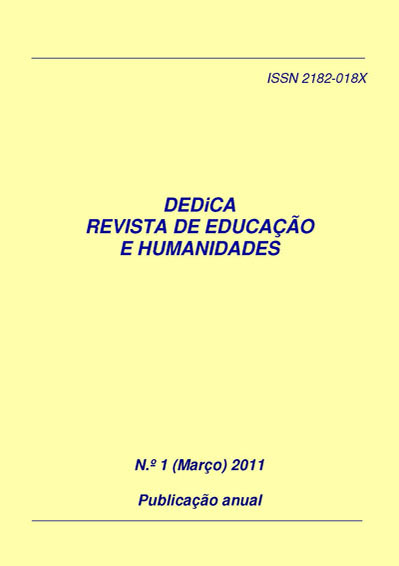Intercultural perspectives on formal and informal Music learning
DOI:
https://doi.org/10.30827/dreh.v0i1.7152Keywords:
Music Education, Pop Music, informal learning, Intercultural Studies, curriculum, educational objectivesAbstract
This paper reviews some of the changes and developments that have occurred in music education over the last decade, following Hargreaves and North’s (2001) international review. I describe some recent developments in England, in which change has been very rapid, and in which education has had a high political profile, and then consider the three main issues which emerged from our international review, namely curriculum issues; the aims and objectives of music education; and the relationship between music in and out of school. I go on to describe two theoretical models which were developed as a result of my work with the Qualifications and Curriculum Authority (QCA) in England: these are models of the different opportunities in music education, and of its intended outcomes. The first of these reveals the importance of the differences between formal and informal music learning, both of which can take place inside as well as outside schools. I conclude by reflecting on the power and ubiquity of music in young people’s everyday lives, which mean that music education policy should reflect and capitalize upon this power.
Downloads
References
Boal-Palheiros, G. M.; Hargreaves, D. J. (2001). Listening to music at home and at school. British Journal of Music Education, 18 (2001) 103-118.
Bjurström, E.; Wennhall, J. (1991). Ungdomar och musik. In Årsbok om ungdom 1991. Stockholm: Statens ungdomsråd.
Hargreaves, D. J.; Lamont, A. M.; Marshall, N.; Tarrant, M. (2003). Young people’s music in and out of school: A study of pupils and teachers in primary and secondary schools. QCA Research Report. Retrievable at: http://www.qca.org.uk/rs/rer.
Hargreaves, D. J.; Marshall, N. A. (2003). Developing identities in music education. Music Education Research, 5, 3 (2003) 263-273.
Hargreaves, D. J.; Marshall, N.; North, A. C. (2003). Music education in the 21st century: a psychological perspective. British Journal of Music Education, 20 (2003) 1-17.
Hargreaves, D. J.; North, A. C. (Eds.) (2001). Musical development and learning: The international perspective, xiv; 242. London & New York: Continuum.
Harland, J.; Kinder, K.; Lord, P.; Stott, A.; Schagen, I.; Haynes, J.; Cusworth, L.; White, R.; Paola, R. (2000). Arts Education in Secondary Schools: Effects and Effectiveness. Slough: NFER.
Hargreaves, D. J. (1996). The development of artistic and musical competence. In I. de Liège; J. A. Sloboda (Eds), Musical beginnings: The origins and development of musical competence, 145-170. Oxford: Oxford University Press.
Hargreaves, D. J.; North, A. C. (1999). The functions of music in everyday life: redefining the social in music psychology. Psychology of Music, 27 (1999) 71-83.
Heath, S. B. (2001). Three’s not a crowd: plans, roles and focus in the arts. Educational Researcher, 30 (2001) 10-17.
Lamont, A. M.; Hargreaves, D. J.; Marshall, N.; Tarrant, M. (2003). Young people’s music in and out of school. British Journal of Music Education, 20, 3 (2003) 1-13.
Mota, G. (2001). Portugal. In D. J. Hargreaves; A. C. North (Eds.), Musical development and learning: The international perspective, 151-162. London & New York: Continuum.
Murao, T.; Wilkins, B. (2001). Japan. In D. J. Hargreaves; A. C. North (Eds.) (2001), Musical development and learning: The international perspective, 87-101. London & New York: Continuum.
North, A. C.; Hargreaves, D. J. (1999). Music and adolescent identity. Music Education Research, 1 (1999) 75-92.
North, A. C.; Hargreaves, D. J. (2008). The social and applied psychology of music, xi, 476. Oxford: Oxford University Press.
North, A. C.; Hargreaves, D. J.; O’Neill, S. (2000). The importance of music to adolescents. British Journal of Educational Psychology, 70 (2000) 255-272.
Oliveira, A. (2001). South America. In D. J. Hargreaves; A. C. North (Eds.) (2001), Musical development and learning: The international perspective, 187-201. London & New York: Continuum.
QCA (2002). Developing new models for music education. Paper presented to the National Music Education Forum, 17.6.02.
Rauscher, F. H.; Shaw, G. L.; Ky, K. (1995). Listening to music enhances spatial-temporal reasoning: towards a neuropsychological basis. Neuroscience Letters, 185 (1995) 44-47.
Ross, M. (1995). What's wrong with school music? British Journal of Music Education, 12 (1995) 185-20.
Ryan, K.; Boulton, M.; O’Neill, S. A.; Sloboda, J. A. (2000). Perceived support and children’s participation in music. In C. Woods; G. Luck; R. Brochard; F. Seddon; J. A. Sloboda (Eds.), Proceedings of the 6th International Conference on Music Perception and Cognition. Keele, UK: Keele University Department of Psychology.
Tarrant, M.; North, A. C.; Hargreaves, D. J. (2000). English and American adolescents’ reasons for listening to music. Psychology of Music, 28 (2000) 166-173.












